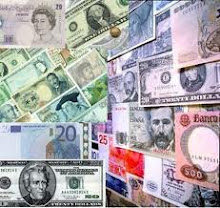How to get home based medical transcription work.
How To Become A Transcriptionist?
How do you become a transcriptionist? People are asking me this question often.
When looking into becoming a transcriptionist, people are getting conflicting answers regarding the requirements to becoming a transcriptionist. Some sites mention that you just have to be proficient at grammar and spelling to get a transcription job. Some sites say you only have to be slightly knowledgeable of medical terms for medical transcribing jobs. That’s an understatement. Other sites are telling you that you can get all your medical transcription training done in about 4 months.
So, that is the truth?
First, you have to realize that there are many industries that can provide you with transcription work from home. Different companies, industries and clients have different transcription requirements. Different transcription schools provide different length and quality of training.
For all types of transcription, you need to have excellent English, grammar and typing skills, be able to listen what is being said and understand and transcribe or type those words.
Medical transcription does not give you immediate work at home. Medical transcriptionists have to be familiar with medical terminology and procedures. Medical transcription requires extensive training and knowledge of medical terminology and most employers will require that you’ve worked at least two years in a medical office before allowing you to work from home. It is almost impossible to get a medical transcription job from home if you're a new medical transcriptionist. Either you'll need to have two years of experience in medical transcription or have worked in the medical field (like being a nurse). Some classes may replace the transcription experience requirements.
Legal transcription requires specialized training as well.
General transcription is the quickest, easiest type of transcription to start with. You don’t need any specialized training for general transcription and business transcription. You can learn general transcription yourself by practicing. If you need to increase your typing speed and accuracy, you can take online typing tutorials.
You can get started with general transcription immediately. General transcription is typing or transcribing any kind of dictation that is not medical or legal. You can transcribe interviews, meetings, telephone conversations, seminars, voicemail messages, memos, letters a variety of documents and more.
I you’re open to any kind of transcription work instead of medical transcription only, and want to get a transcription job that you can work at home, and set your own hours, then you have several options for transcription jobs from home. Which kind of transcription work is right for you depends on your preference and the amount of transcription training you want to get.
There is a lot of talk and concerns about medical transcription jobs and how speech recognition software and overseas outsourcing of transcription work may be taking away transcription jobs.
Here's what the US Department of Labor states on their web site:
"Contracting out transcription work overseas and advancements in speech recognition technology are not expected to significantly reduce the need for well-trained medical transcriptionists. Outsourcing transcription work abroad—to countries such as India, Pakistan, Philippines, Barbados, and Canada—has grown more popular as transmitting confidential health information over the Internet has become more secure; however, the demand for overseas transcription services is expected only to supplement the demand for well-trained domestic medical transcriptionists. In addition, reports transcribed by overseas medical transcription services usually require editing for accuracy by domestic medical transcriptionists before they meet U.S. quality standards.
Speech recognition technology allows physicians and other health professionals to dictate medical reports to a computer, which immediately creates an electronic document. In spite of the advances in this technology, the software has been slow to grasp and analyze the human voice, the English language, and the medical vernacular with all its diversity. As a result, there will continue to be a need for skilled medical transcriptionists to identify and appropriately edit the inevitable errors created by speech recognition systems and to create a final document."
I totally agree with the above statements. Speech recognition software will create additional jobs. Because the software does not transcribe accurately and transcription work that is outsources to foreign countries is not accurate either, you already start seeing more job posting for transcription editors to edit the work of transcriptionists. Many people report enjoying transcription editing work.
Labels: speech recognition software, the outlook for transcription jobs, transcription editors, transcription jobs
The Future of Medical Transcription Jobs
Some people are concerned about future of medical transcription jobs and general transcription jobs. You should not be concerned about future transcription job opportunities.
The job prospects for transcription jobs are good. Here's what the United States Department of Labor says on their web site about the future for medical transcription jobs.
"Job opportunities will be good, especially for those who are certified. Hospitals will continue to employ a large percentage of medical transcriptionists, but job growth will be in other industries. An increasing demand for standardized records should result in rapid employment growth in physicians' offices, especially in large group practices."










